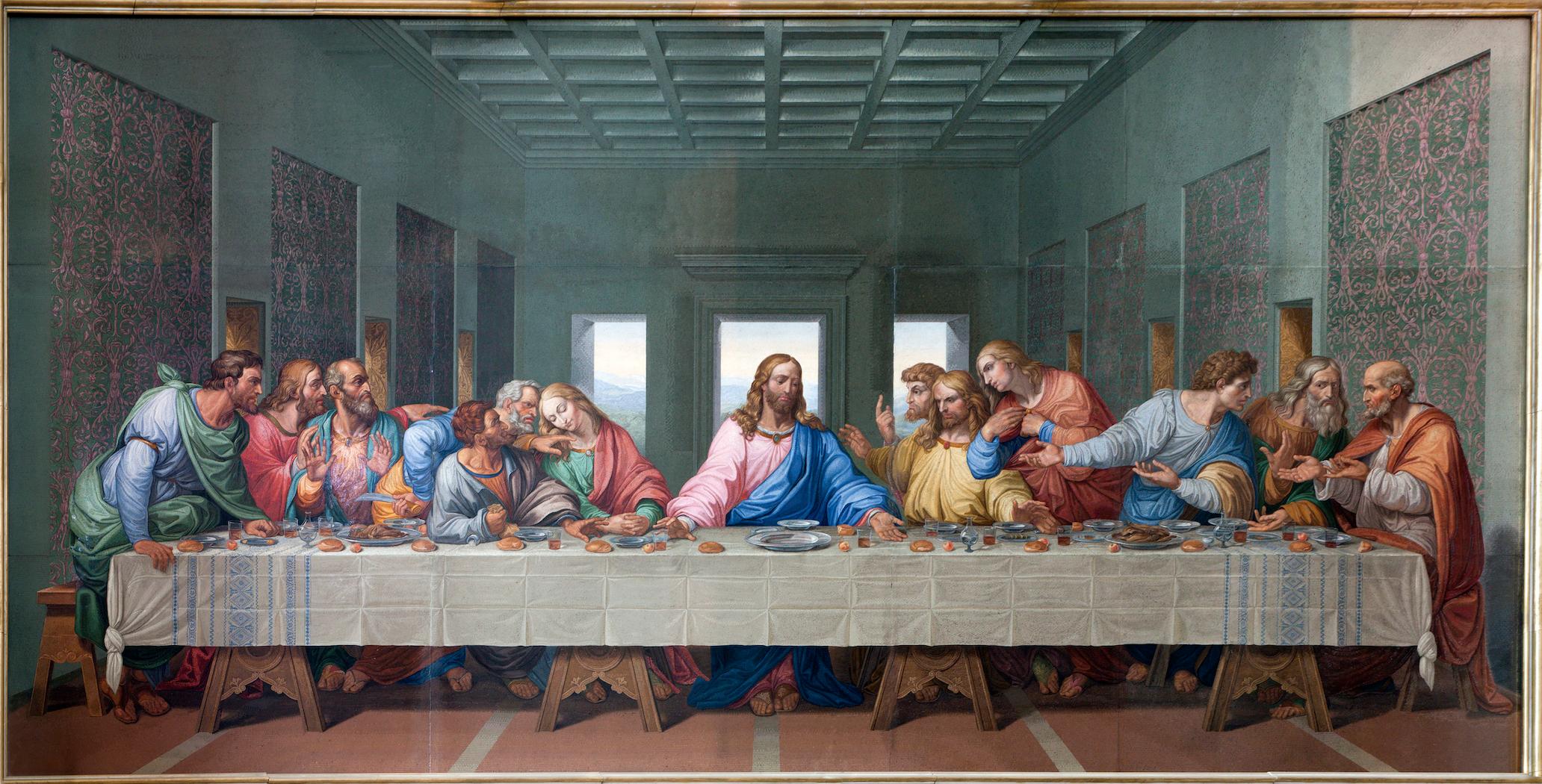Ep.1217: Should Christians Be Practicing Laying on of Hands?
Discovering the meaning and use of “laying on of hands” for Christians
If you do not have a password, please subscribe to our FREE Premium Content for the Full Edition version of CQ Rewind. The welcome message will contain your password, and a reminder will be sent each week when the CQ Rewind is available online for you to read, print, or download.
CHAPTERS
Theme Scripture: 1 Timothy 4:14
In the 2,000 years since Jesus walked the earth, Christianity has in some ways progressed but in many ways fragmented. Depending on the doctrine or ritual you are looking at, you can find groups with a laser focus on it or a minimized approach to it. The early Christian ritual of the “laying on of hands” is a good example of this dichotomy. Some of us centralize its importance while others of us see it as a thing of the past. If laying on of hands was central, why was it NOT used consistently? If it was of little significance, then why was it used at all? The fact is, the act of laying on of hands was clearly present in the Old Testament. The apostles did plainly use this ritual several times. So, what is the bottom-line application of laying on of hands for Christians living today?
Purposes in the Old Testament
The Old Testament reveals that laying on of hands was used in ancient times in relation to several important functions:
- As a symbol of passing on a patriarchal blessing, as in the case of Israel with his grandsons Ephraim and Manasseh in Genesis 48.
- As a symbol of dedicating one to a position of spiritual authority and responsibility, demonstrated in Numbers 8.
- It also came up in an instance of healing in through Elisha in 2 Kings 4.
The point is, this ritual had a clear foundation of acceptability and importance as Jesus later came on the scene.
What about Jesus?
Jesus did lay hands on others, but he was not consistent. While there are several accounts of him healing this way, there are also several accounts of him healing without touch. Jesus even healed when the sick individual was not in his presence. While Jesus did lay his hands on children to bless them, he also blessed others by just his spoken words.
If we move on to examine the laying on of hands regarding the apostles and disciples, we see the same inconsistency. They sometimes healed though laying on of hands and sometimes didn’t. Sometimes they conferred Christian authority and responsibility upon others using this ritual and sometimes didn’t. They were even inconsistent when it came to being the conduit for followers to receive the holy spirit. If our primary examples of Jesus and the apostles didn't display a clear example regarding this ritual, then what are we supposed to do?
Check out our February 21, 2022 podcast, “Should Christians be Practicing “Laying on of Hands?” for more. We trace how and why the Jewish importance of this ritual transferred to Christianity. We examine the New Testament inconsistencies regarding laying on of hands and find the reasons behind them. Most importantly, we look at what our responsibilities are towards laying on of hands today. The question of whether or not we should use this ritual is important and the Scriptures do give us a clear answer. Join us for a fascinating journey into an important foundation of Christianity!
























How does the gift of healing in 1 Corinthians 12 tie to the laying on of hands?!
Hi, Carmen – great question! In general, the gifts of the spirit were given to the early church to call attention to this unknown group of followers of Christ and to give them spiritual credibility. This is illustrated by the first gift of the holy spirit given directly by God – the gift of speaking in tongues. This very first outpouring of a gift of the spirit took place at Pentecost, when the Holy spirit was imparted. Acts 2:1-4: “And when the day of Pentecost had come, they were all together in one place. And suddenly there came from heaven a noise like a violent, rushing wind, and it filled the whole house where they were sitting. And there appeared to them tongues as of fire distributing themselves, and they rested on each one of them. And they were all filled with the holy spirit and began to speak with other tongues, as the spirit was giving them utterance.”
The result of speaking in tongues — speaking in the foreign languages and dialects of the time – made the understanding of the gospel by those from different nations possible. Acts 2:5-6: “Now there were Jews living in Jerusalem, devout men, FROM EVERY NATION UNDER HEAVEN. And when this sound occurred, the multitude came together, and were bewildered, because they were each one hearing them speak in his own language.” After a discourse by Peter explaining to the Jews prophesy regarding the holy spirit and the death and resurrection of Jesus, many of these people had a profound change of heart. Acts 2:41: “So then those who received his word were baptized; and there were added that day about three thousand souls. Even a man named Simon, a magician was converted and believed, and Acts 8:13: “he continued on with Philip; and as he observed signs and great miracles taking place, he was constantly amazed.”
In answer to your question, after Pentecost it was the laying on of hands by the Apostles that was associated with Christians receiving the gifts of the holy spirit. Peter and John were sent to Samaria. In Acts 8:14-17, they came down and prayed for them, that they might receive the Holy spirit…they began laying their hands on them, and they were receiving the holy spirit. In the Apostle Paul’s letter to Timothy he counsels Timothy to “kindle afresh the gift of God which is in you through the laying on of my hands.” See 2 Timothy 1:6 and 1 Timothy 4:14.
1 Corinthians 12 deals with the different gifts of the spirit, including healing, (1 Corinthians 12:9). In 1 Corinthians 13, the need for these gifts was shown to be temporary and of lesser importance than the character development of love. 1 Corinthians 13:8-10: “Love never fails; but is there are gifts of prophecy, they will be done away; if there are tongues, they will cease; if there is knowledge it will be done away. For we know in part [in pieces] and we prophecy in part; but when the perfect comes, the partial will be done away.” When the “perfect” comes — when the sacred writings of Scripture were completed by the writings and letters of the New Testament, the early church would no longer need miraculous gifts, and therefore these gifts would be “done away” once the church was established and the gospel was preached among many nations. These miraculous gifts ended when the Apostles no longer performed the “laying on of hands” because they had finished their earthy course. – Christian Questions
Hi!
Thank you for your feedback, as I did a little research I see that there are those that believe the gifts have ended and those that believe the gifts of Holy Spirit are still present – which I did not know prior to coming to your site as I am a newer believer so this a new concept.
I can’t say I am convinced that it has ended based on what I have read in the Bible, so I remain open to the gifts of the Holy Spirit still operating today!
Thank you very much for your reply, and we’re sure all of your additional study has been a blessing. Two of the convincing points for us include: 1. The purpose: the gifts were used as a witness to nonbelievers to follow Christianity in a time when the following was new and needed to expand from Judaism. Today, “gifts” are often used in churches to somehow “prove” to fellow churchgoers that they have received the holy spirit vs. others in that church. Obviously if anyone truly had the gift of healing, for example, we trust they would clean out the hospitals around the world. Second, there are no instances in scripture of anyone able to pass along the gifts other than the apostles. After they died, these special abilities were no longer needed to attract people to the gospel message. The apostles could lay their hands on someone who could perform the gifts, but there are no instances of that receipient being able in turn to pass it along. This was demonstrated dramatically in the events of Simon the Magician who seemingly wanted to have the power in order to gain fame and likely money to have such ability. (See Acts 8:9-25) We hope you have an opportunity to listen to this Episode 1217 with the CQ Rewind Show Notes. It describes the various times laying on of hands was used in both the Old and New Testaments.
Our conclusion was: There is no scriptural indication that laying on of hands was to be perpetually observed by Christians for any purpose. It would not be appropriate for us to try to mimic what the apostles did because we do not have the scriptural guidance showing us to do so. The use of laying on of hands was limited in the New Testament. However, it is appropriate to “lay hands” on someone to be encouraging, supporting, co-laboring and to provide comfort in their lives. This fits into the healing power of touch. Laying on of hands is not for us today because its purpose was fulfilled. The gospel and its authority have already been established for thousands of years. We are to continue the work to carry it forward. Finally, while we do not have the authority to be laying on hands, we certainly do have the authority to uphold and verify the God-honoring work of the brotherhood related to the gospel. May the LORD bless your studies – Christian Questions
Yes, it’s been a blessing, thank you! The fruits of the Holy Spirit are still operational and I don’t see where in the Bible it shows the gifts of the Holy Spirit ended with the apostles!
Yes, it’s been a blessing, thank you! The fruits of the Holy Spirit are still operational and I don’t see where in the Bible it shows the gifts of the Holy Spirit ended with the apostles!
Were you able to find any examples of scriptural healings/speaking in tongues not directly associated with an apostle? – Christian Questions